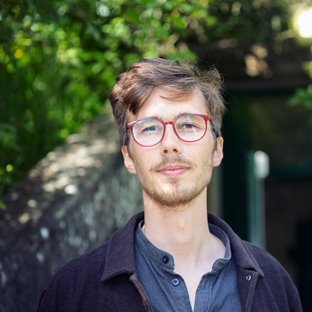Master of Music - Performance: short description
During the master’s programme, you develop into a music professional with a strong identity. You explore what that means for you personally, and which competencies you wish to strengthen. In this way, you will be the ‘master’ of your own learning process — both during and after the programme — while becoming a professional musician.- Take ownership of your own development; create a personal study plan based on your own ambitions.
- High degree of flexibility; each master’s student follows their own unique plan.
- Develop yourself within a broad context, always aimed at what you need in the professional field.
- Receive guidance from specialised teachers who are strongly embedded in the professional practice.
- Study in a close-knit and familiar community, with lots of attention for your personal development.
When is the Master of Music right for you?
The Master of Music is meant for students with a clear demand for further development after obtaining their bachelor’s degree. This demand can be aimed at either broadening or specialising your skills. We assume that after completing your bachelor's, you already master your craft as a musician at a professional level. The question now is: what do you want to achieve with this skill? Where do you currently stand, and where do you want to be in two years? Perhaps, after completing your bachelor's, you want to further enhance your artistic profile or musical practice. Or you may want to refine your production or research skills. For any kind of further development of your abilities and professionalism, the Master of Music can make it happen.Why choose the Master of Music at HKU?
Direct your own development
The Master of Music allows you to personally shape your own curriculum on the basis of your ambitions. Of course, we help you in this. We start with an open conversation, guided by questions such as: who are you as a musician? What are your ambitions? Where do you see yourself in two years? Teachers support your development by sharing their professional expertise with you. This can be technical skills, as well as competence in artistic and musical leadership. Teachers also have a coaching role; they listen to what you want and inspire and advise you on that basis.
Learning in a broad context
A musician has a broad and diverse field of work. To support the progression of your professional career in the best possible way, the Master of Music therefore offers a broad learning context. You not only further enhance your current knowledge and skills, but also get to know new perspectives, and new work and research practices. As a student, you are taught by teachers from the whole Conservatorium – and even from throughout HKU. Together we help you define your exact goals, with lots of room for both creative and entrepreneurial skills.
Highly skilled teaching staff
As a student at HKU, you can count on a committed and enthusiastic team of teachers. Each of them is an expert in their particular field and strongly engaged within the professional practice. They are often found on the (inter)national stages themselves. They know what’s happening in the field and what you need as a musician to thrive there.
Healthy working and learning environment
We highly value a safe and healthy working and learning environment. Our academy is relatively small-scale, which ensures lots of direct communication while everyone is easy to find. We dedicate lots of time and attention to your personal development. This is not limited to your artistic and musical qualities; it also includes your physical and mental health. Each person is unique, and therefore the guidance of each individual student is also unique.
Authentic historic location
At HKU, you study in the marvellous historic environment of our Mariaplaats location. Two buildings with a rich history, at the heart of Utrecht and a view on the Dom Tower. HKU Utrechts Conservatorium is celebrating its 150-year anniversary in academic year 25/26, which makes it one of the oldest music education institutes of the Netherlands. The past and the present are combined here, as the stories from history resonate with the stories and music of today.
Excited? Apply now!
The programme in figures
Want to know how this Master of Music is scoring compared to similar programmes?
Stay tuned!
Sign up for HKU Next Step, the newsletter with information about the HKU masters.
Sign up for the HKU master newsletter
